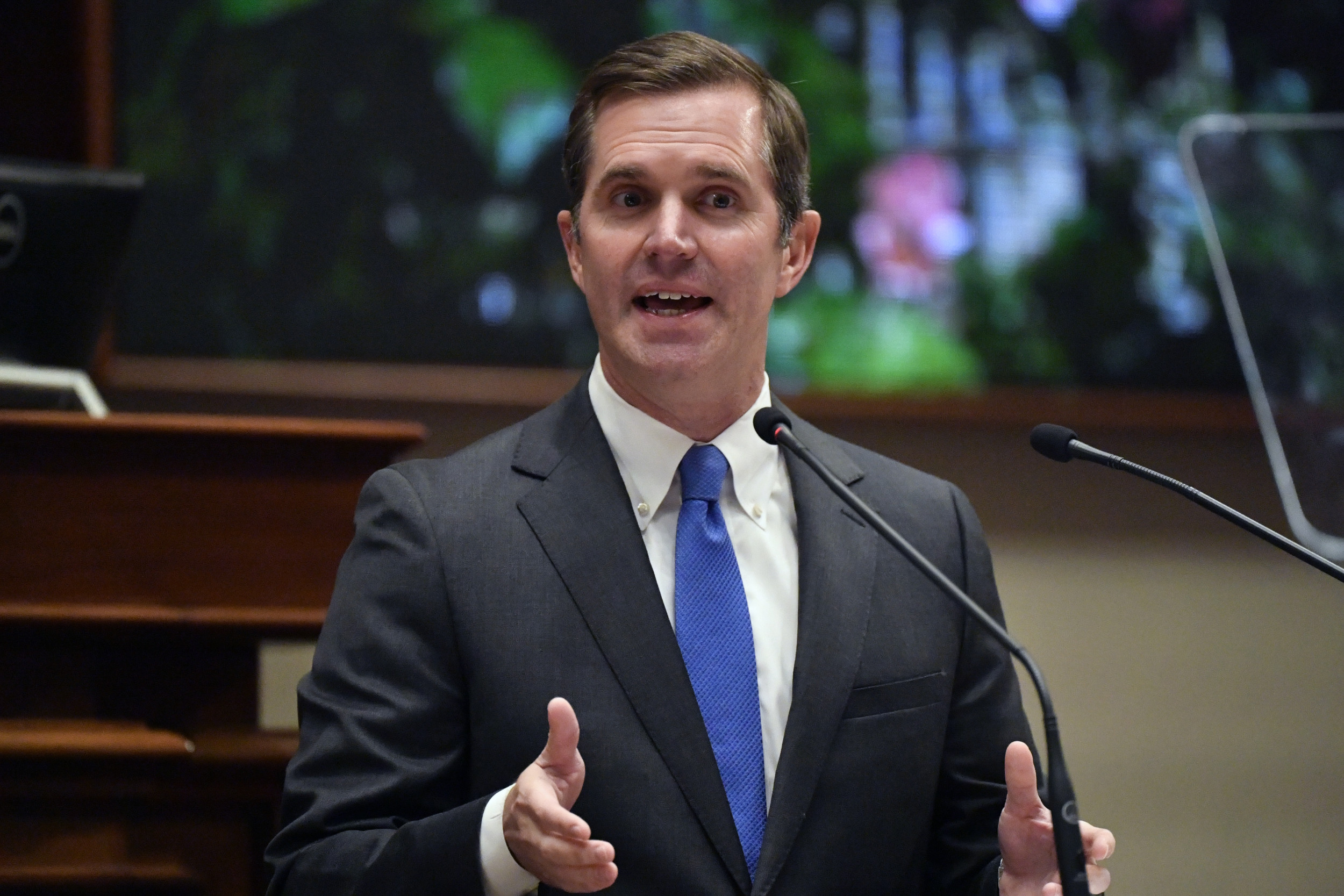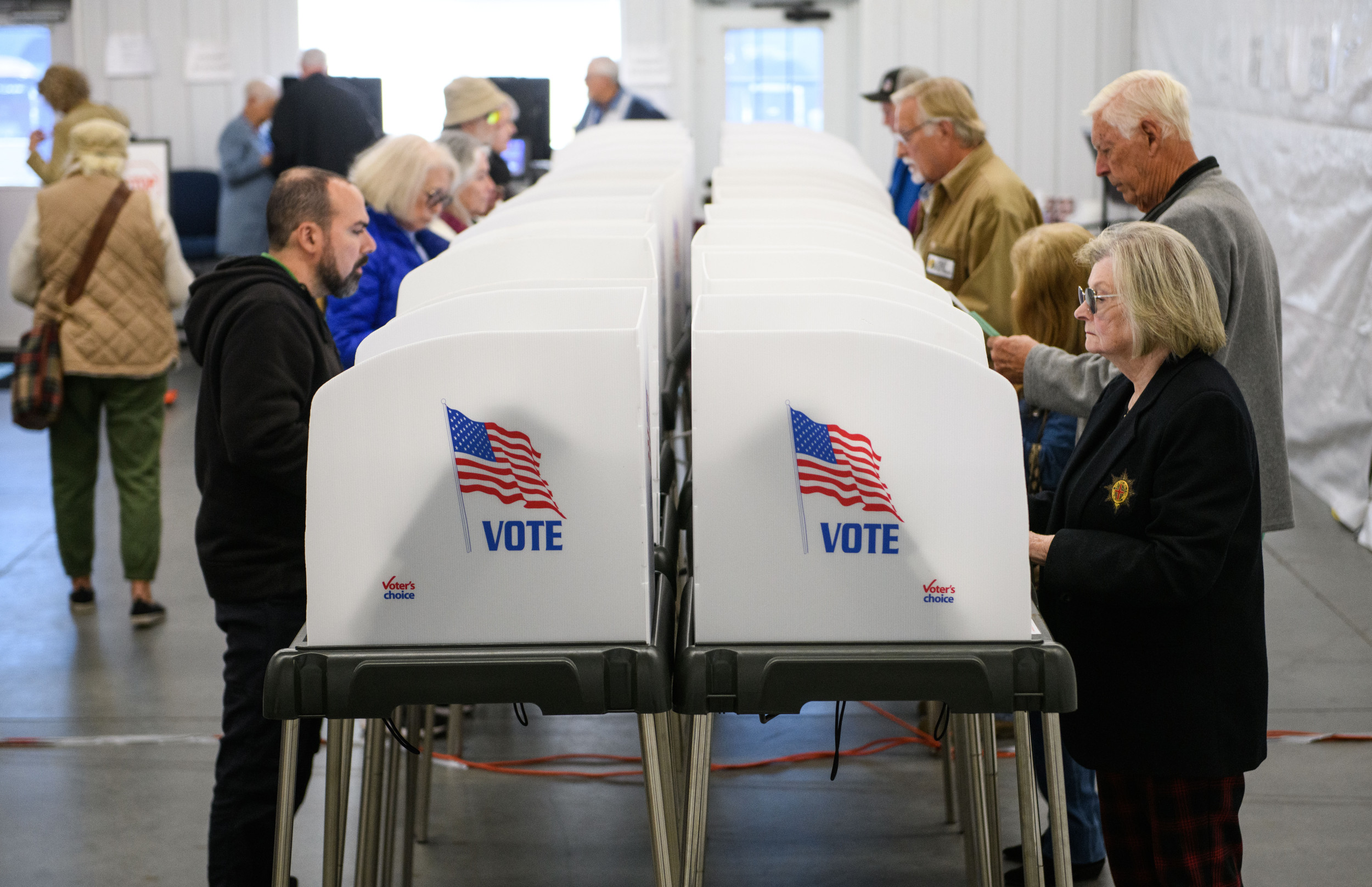Conventional political wisdom holds that Democrats typically benefit from high voter turnout and are harmed by voter restrictions, but recent presidential election data may challenge this view.
Why It Matters
Many political observers viewed the 2024 election as a historical realignment, with Republican President Donald Trump gaining ground with voter groups that historically leaned toward Democrats, such as Latino voters and young voters, groups who Democrats have for decades argued could be disenfranchised by harsher voting restrictions.
Now, some are questioning whether voting restrictions really harm Democrats, having potential implications for future elections.
What To Know
The Pew Research Center last week unveiled new data on the 2024 election, showing that if every eligible American voted, Trump would still have defeated former Vice President Kamala Harris in the 2024 election.
In fact, nonvoters preferred Trump by a four-point margin (44 percent to 40 percent), a major shift from 2020, when nonvoters preferred former President Joe Biden by an 11-point margin over Trump (46 percent to 35 percent), according to Pew.
This raises questions about the long-standing view that Democrats benefit from high-turnout elections and that lower-propensity voters are more likely to favor Democrats.
MSNBC columnist and newsletter editor Ryan Teague Beckwith wrote in an opinion article published Wednesday that the data “disproves Democrats’ most cherished delusion,” referring to the belief that voter restrictions harm Democrats.
“Donald Trump won that election by 1.5 percentage points, but any Democrat who muttered that new restrictions on voting in red states skewed the result has to contend with this study, which involved surveying 9,000 voters after the election and then painstakingly verifying which ones actually voted — and which didn’t,” Beckwith wrote.
Melissa Sue Gerrits/Getty Images
Jacob Neiheisel, an associate professor in the Department of Political Science at the University at Buffalo, told Newsweek that there is “very little evidence that voter ID laws decrease turnout on average,” as Democrats use their existence to mobilize voters.
However, shifting voter coalitions could “absolutely” influence the “partisan effects of different election reforms in the near future,” he said.
“Democrats used to be a low-propensity group in terms of turnout. The Democratic coalition has grown more educated in the Trump era, however, meaning that the Republicans will (or soon will be) the partisan coalition that consists of more marginal supporters,” he said.
The relationship between turnout and partisanship has long been “complicated,” and that expanding voter access seems to be a ” really blunt instrument for changing a party’s electoral fortunes,” Neiheisel said.
Voter ID remains broadly popular among voters across the political spectrum. A Gallup poll from October 2024 found that 84 percent of Americans support requiring voters to provide a photo ID at their voting place in order to vote. Even 67 percent of Democrats supported he measure.
Other Studies Show Little Effect From Voter Access and ID Laws
A 2023 study titled “Who benefits from voter identification laws?” written by Jeffrey Harden and Alejandra Campos found “negligible average effects” in terms of which party benefits from voter ID laws, as the laws caused mobilization among both parties, “ultimately mitigating their anticipated effects on election results.”
That study was published in the Proceedings of the National Academy of Sciences of the United States of America.
Studies conducted after the 2020 presidential race dispelled the idea that measures aimed at making it easier to vote by mail or absentee during the COVID-19 pandemic benefited Democrats.
A regression analysis from the Center for Politics at the University of Virginia concluded that the increase in absentee voting that year “did not favor Joe Biden’s candidacy.” Absentee voting had “no effect at all on 2020 Democratic vote margin” after controlling for the 2016 Democratic vote margin, wrote author Alan I. Abramowitz.
“These findings suggest that efforts by Republican legislators in a number of states to roll back eased absentee voting rules and make it more difficult for voters to take advantage of absentee voting in the future are unlikely to benefit GOP candidates,” Abramowitz wrote. “Not only is there no evidence that absentee voting leads to widespread fraud, there is also no evidence that it favors Democratic candidates.”
A separate study titled “Vote-by-Mail Policy and the 2020 Presidential Election,” authored by Eric McGhee and Mindy Romero, also found that vote-by-mail has no “robust partisan effect,” and that some models suggest Republicans might get a slight advantage from these policies.
What People Are Saying
New York Times political analyst Nate Cohn wrote in a report: “For a generation, the assumption that Democrats benefit from high turnout has underpinned the hopes and machinations of both parties, from Republican support for restrictive voting laws to Democratic hopes of mobilizing a new progressive coalition of young and nonwhite voters.
“It’s not clear whether Democrats will struggle with irregular voters in the future, but the data nonetheless essentially ends the debate about whether Ms. Harris lost because she alienated swing voters or because she failed to energize her base. In the end, Democrats alienated voters whose longtime support they might have taken for granted.”
Elections expert G. Elliott Morris, in an April Substack post: “Obviously, the less reliable coalition Republicans are leaning on now can still work out for a party when leaders are willing to quickly make huge changes to public policy and otherwise wield political power in unprecedented ways. As a corollary, it’s harder for Democrats to win higher-profile contests and rarer, then, to wield that power. But only winning races when (a) broader conditions are in your favor and (b) you can activate your hard-to-reach supporters is not a good strategy for establishing a broad base of power.”
What Happens Next
Partisan coalitions are constantly evolving in politics, so it remains to be seen whether these findings will hold up in future elections.











